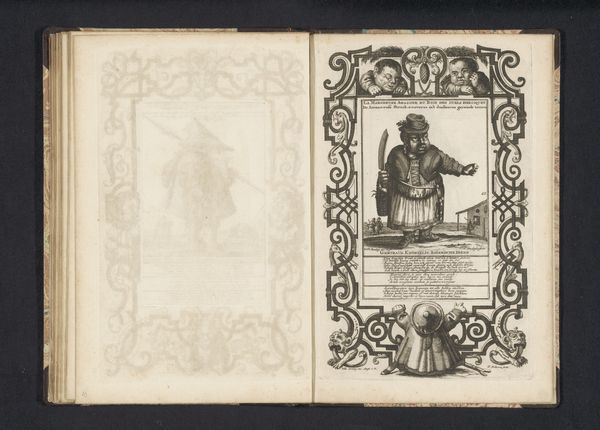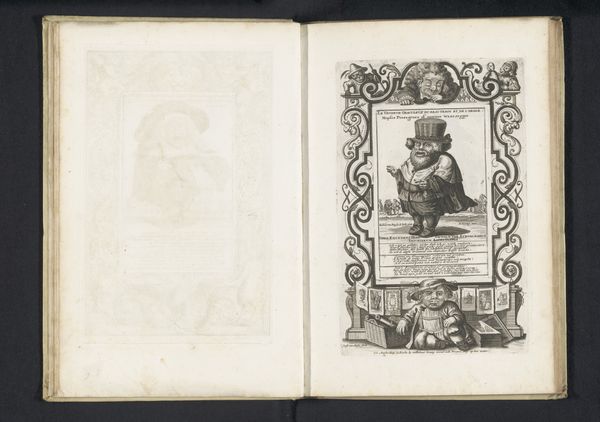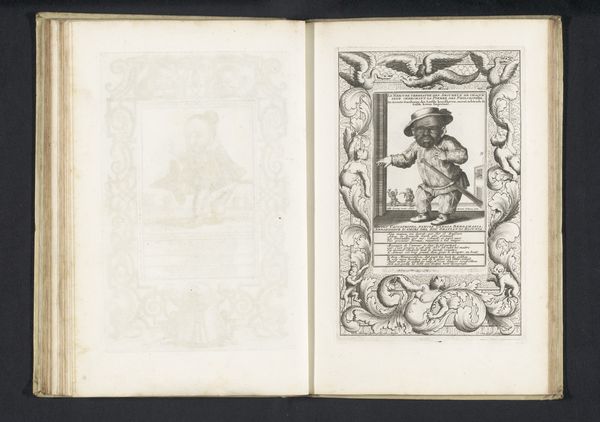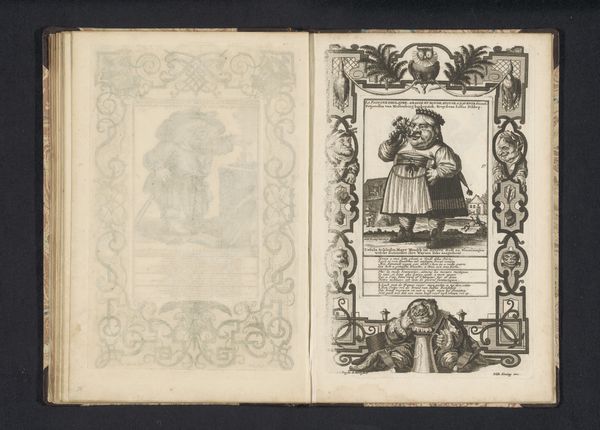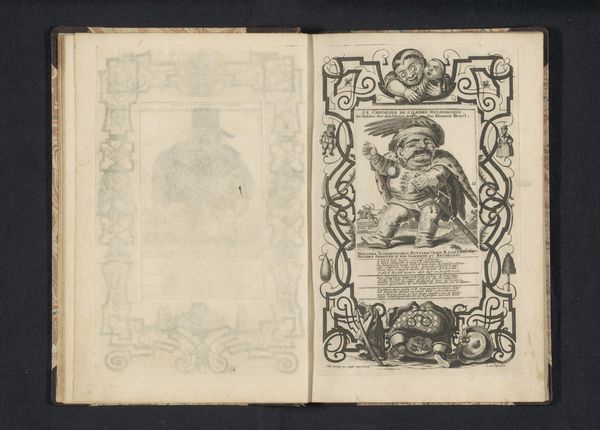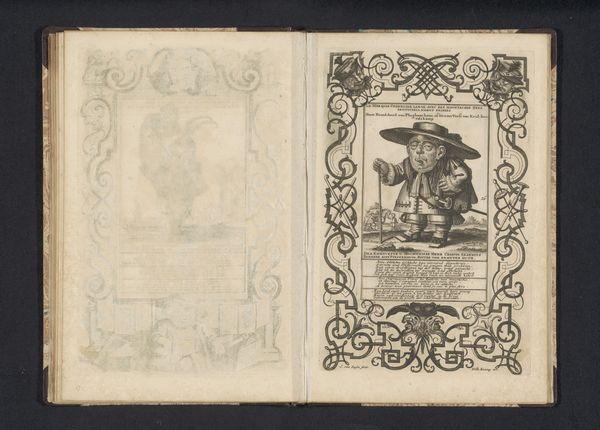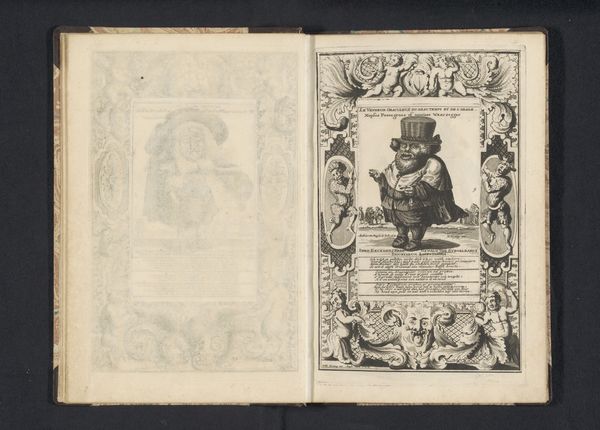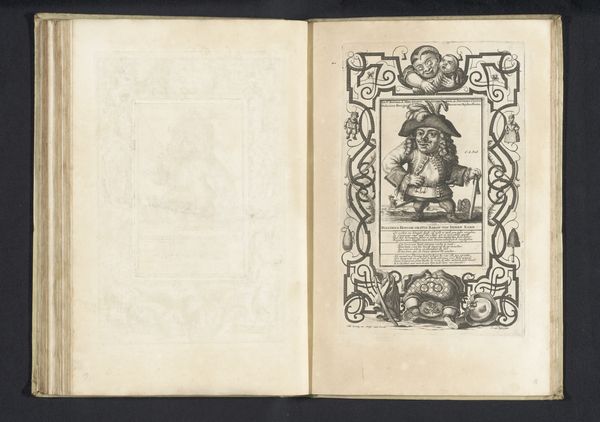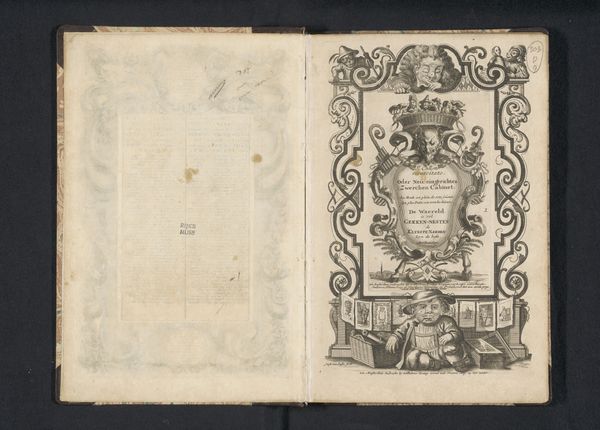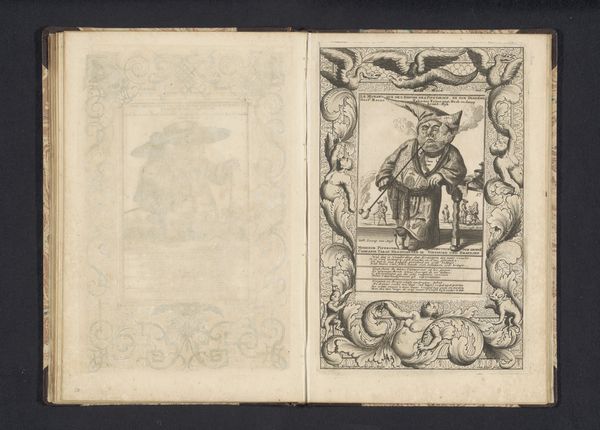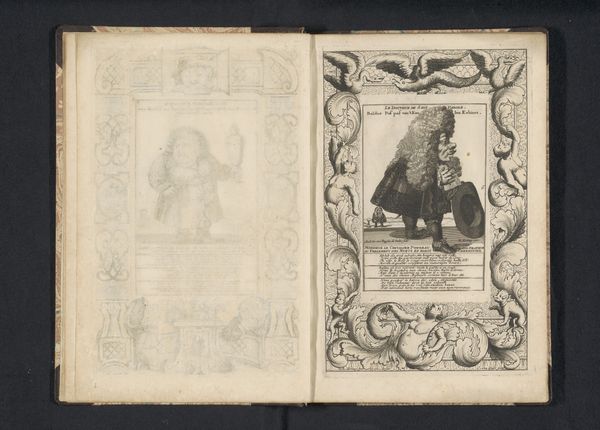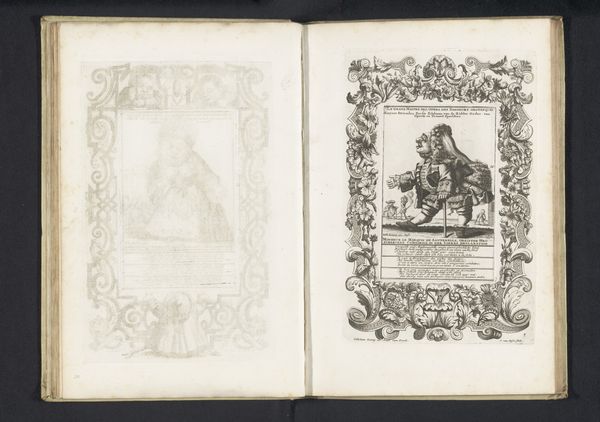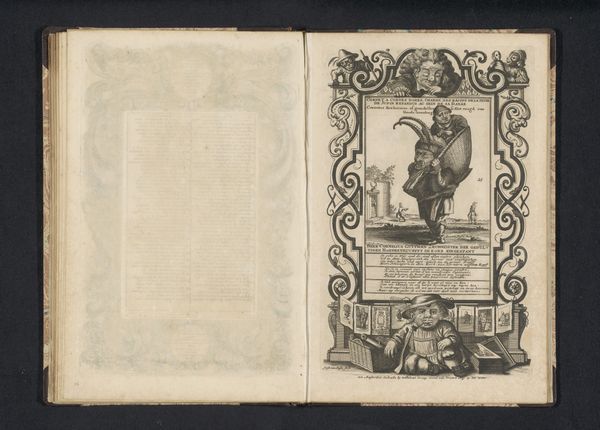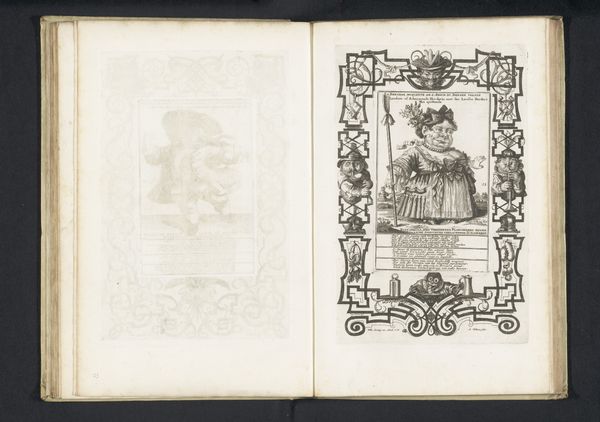
drawing, print, paper, ink, engraving
#
drawing
#
baroque
# print
#
caricature
#
paper
#
ink
#
genre-painting
#
engraving
Dimensions: height 160 mm, width 105 mm, height 275 mm, width 172 mm
Copyright: Rijks Museum: Open Domain
This etching, 'De dwerg Jan Hagel als een Hollandse bootsknecht', was made by Fopje Folkema in 1716, and is printed on paper. The printmaking technique has imbued the artwork with social and cultural significance. The lines, tones, and textures were created through a chemical process, using acid to bite into the surface of a metal plate, which was then inked and pressed onto the page. Look closely and you can see the crispness and fineness of the lines etched into the paper. This process allowed for the mass production of images, making them accessible to a wider audience. Printmaking like etching and engraving has a long history of use in political satire, commentary, and caricature. It often served as a means of social critique, challenging established power structures. Consider how the act of production – the way this etching was conceived, crafted, and disseminated – is deeply tied to wider social issues of labor, politics, and consumption. Ultimately, it’s about challenging traditional distinctions between fine art and craft.
Comments
No comments
Be the first to comment and join the conversation on the ultimate creative platform.
